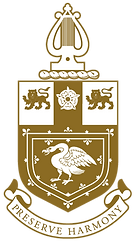Sir Brook Watson
(Lord Mayor 1796 - 1797)

Sir Brook Watson (1735-1807) was the first Lord Mayor to have the Musicians’ Company as his Mother Company. At age 14 he lost his right leg following a shark attack while swimming in Havana, an event that became the subject of a painting he commissioned from John Singleton Copley. This painting, formerly on display at Christ’s Hospital in Horsham, is now owned by the National Gallery of Art in Washington DC.
Watson moved to London in 1759 and became a merchant. In 1773 he presented a folio edition of Milton’s Paradise Lost (now at Harvard University) to Phillis Wheatley, a visiting African-American colonial poet. He became Commissary-General to the army in Canada in 1782 and returned to England the following year.
Watson was MP for the City of London from 1784 to 1793. He became the Alderman of Cordwainer Ward in 1784 and Sheriff of the City of London in 1785. He was chairman of the House of Commons Select Committee on the Regency Bill in 1788.
He joined the Musicians' Company and was clothed in the Livery in January 1784. In the October of that same year he was elected to the Court of Assistants. He became Master of the Company in 1790.
He resigned his seat in Parliament in 1793 on becoming Commissary-General to the Duke of York's army in Flanders, where he served until 1795. Lord Liverpool described him as “one of the most honourable men ever known”.
Alderman, Brook Watson (still on the Court of Assistants) became Lord Mayor in 1796. The Company’s participation in the Lord Mayor’s Show that year took a toll on its finances, and no Company dinners or feasts were held the following year.
A good account of the Show is given in the Court Minutes of December 15th 1796 - the two relevant pages are shown right, click the image to expand.
Watson had a troubled year of office. At a Common Hall in 1797 a resolution was brought forward “to investigate the real cause of the awful and alarming state of public affairs”. Watson ruled this out of order, and closed a heated discussion by having the mace taken up. At another Hall that year, he was censured, and a resolution was passed denouncing the ministry for having plunged the country into an unnecessary and unjust war; but he had many supporters.
In 1798 Watson was appointed Commissary-General to the forces in Great Britain, and in 1803 he was made a Baronet.
: :



